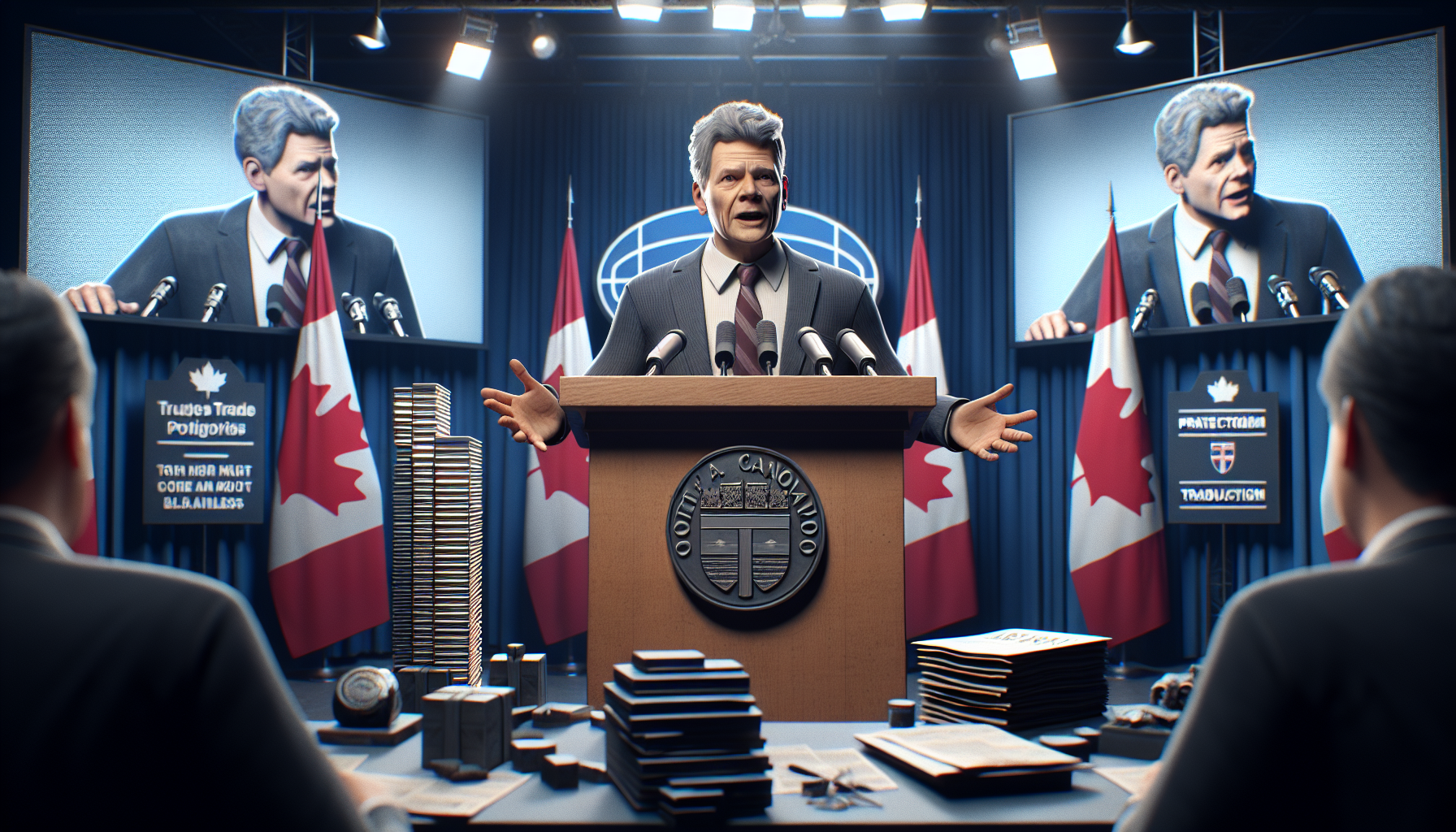Ontario Premier Doug Ford, once openly admiring of Donald Trump, has become one of the most prominent Canadian voices against the U.S. president’s tariff agenda. A recent Ontario-funded TV ad using Ronald Reagan’s 1987 warnings about protectionism prompted Trump to abruptly cancel trade talks, before Ford paused the campaign to ease tensions.
Doug Ford’s political arc has been striking. A pugnacious conservative who embraced populist themes in his 2018 run for premier, he is now a chief antagonist of President Donald Trump’s tariff push—most visibly through an Ontario government ad that stitched together Ronald Reagan’s 1987 remarks cautioning against protectionism. After the spot aired on U.S. television last week, Trump halted negotiations with Canada; Ford then said the ad would pause so talks could resume. (washingtonpost.com)
From populist to pragmatist
Ford swept to power in 2018 after 15 years of Liberal rule in Ontario, campaigning against elites, pledging to cut taxes and gas prices, and vowing to scrap cap‑and‑trade. As political analyst Steve Paikin told NPR, Ford’s early “disruptive, robust populism” quickly proved unpopular, prompting a tack to the center and a pandemic response that even critics praised. “COVID saved him… He suddenly realized, I need to rely on experts,” Paikin said. (These assessments and quotes are from NPR’s reporting.) (en.wikipedia.org)
An election-year turn against tariffs
With Trump threatening sweeping tariffs, Ford called a snap election and won a third straight majority on Feb. 27, 2025—an unusual three‑peat in Ontario politics. On the trail he donned a blue “Canada is not for sale” cap and warned that “steep and sweeping tariffs” would devastate jobs. After the vote, media and political opponents alike dubbed him “Captain Canada.” (apnews.com)
Even before election day, Ford had started wielding provincial levers: his government canceled a roughly C$100 million Starlink (SpaceX) contract for rural internet and moved to make U.S.-made goods and firms ineligible for some Ontario procurement. Weeks later, Ontario imposed a surcharge on electricity exports to New York, Michigan and Minnesota—while warning a cutoff could follow if tariffs escalated. (reuters.com)
The Reagan ad that stopped the talks—for now
Ontario’s one‑minute ad lifted Reagan’s language about the dangers of protectionism. The Ronald Reagan Presidential Foundation & Institute accused Ontario of using “selective” editing and said it was reviewing legal options; independent fact‑checks noted the clips were spliced but did not invent Reagan’s views, which warned that broad tariffs can trigger retaliation and job losses. Citing the ad, Trump abruptly canceled U.S.-Canada talks on Oct. 23. After speaking with Prime Minister Mark Carney, Ford said he would pause the buy following scheduled World Series placements, adding, “Canada and the United States are friends, neighbours and allies” and that the goal was to spark a conversation about tariffs—“and we’ve achieved it.” (reuters.com)
Ottawa’s changing cast—and Washington’s ‘Liberation Day’
The fight has played out amid rapid political change. Justin Trudeau announced on Jan. 6 that he would step down as Liberal leader and remain prime minister until a successor was chosen; former central banker Mark Carney was sworn in as prime minister on March 14. In Washington, Trump’s April 2 “Liberation Day” event unveiled a sweeping tariff framework and signaled an escalation of trade brinkmanship with close partners. (washingtonpost.com)
A family steeped in politics
Ford’s rise followed a turbulent period in Toronto politics. He served on city council from 2010 to 2014 while his brother, Mayor Rob Ford, was engulfed in scandal and ultimately admitted in 2013 that he had smoked crack cocaine; Rob Ford died from cancer in 2016. (NPR’s profile also notes a Globe and Mail exposé alleging the Ford brothers dealt hashish in the 1980s.) (en.wikipedia.org)
‘Good cop, bad cop’
NPR’s reporting characterizes Ford as the “bad cop” to Carney’s “good cop”—a coordinated contrast in tone as Canada presses its case with Americans skeptical of tariffs. Whether that pairing restarts talks remains to be seen, but Ford’s evolution from Trump enthusiast to tariff critic now defines Canada’s most consequential cross‑border political relationship. (kunr.org)

